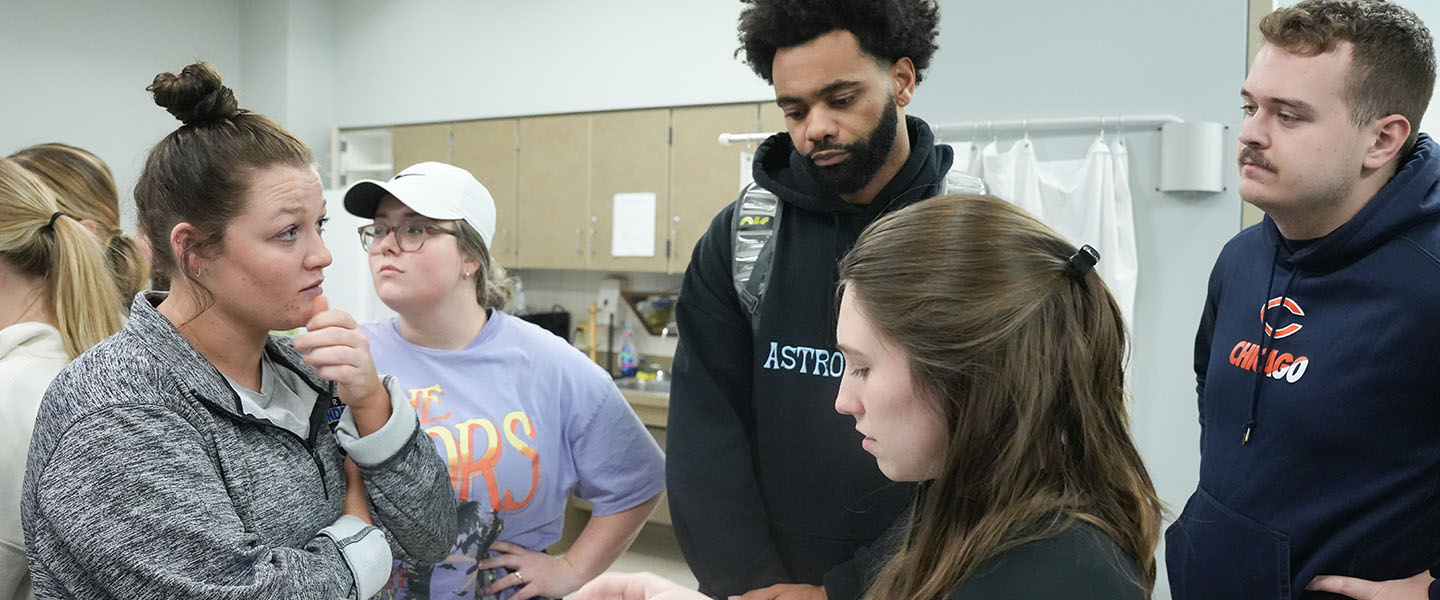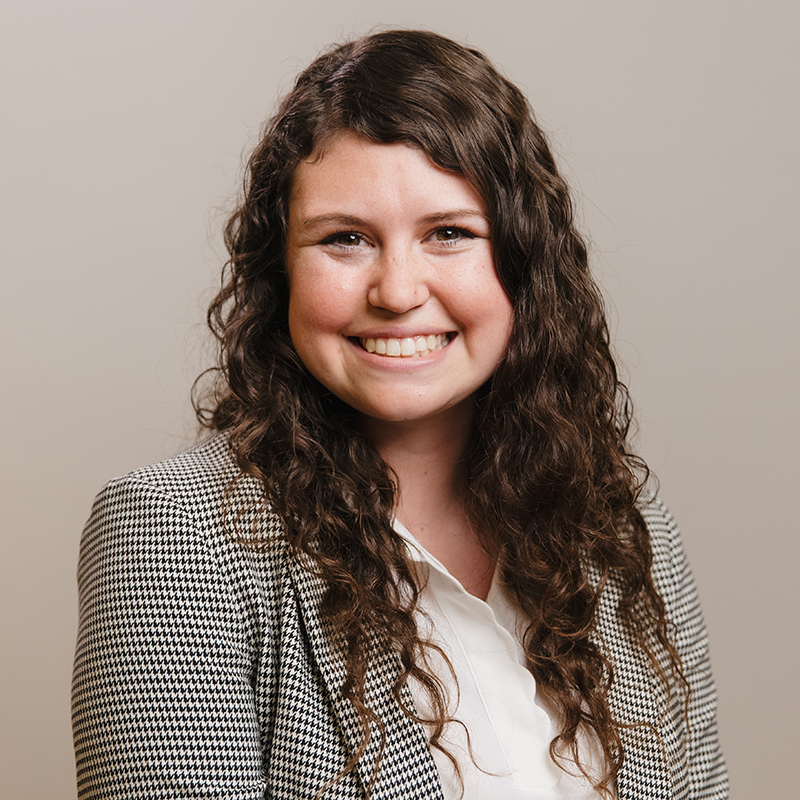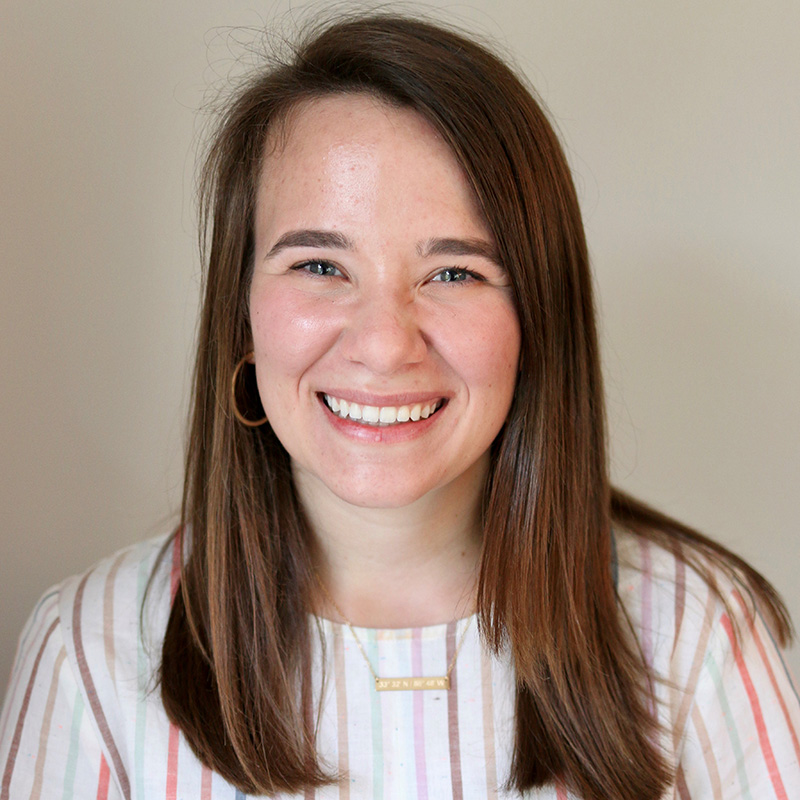Why choose the OTD program at Belmont?
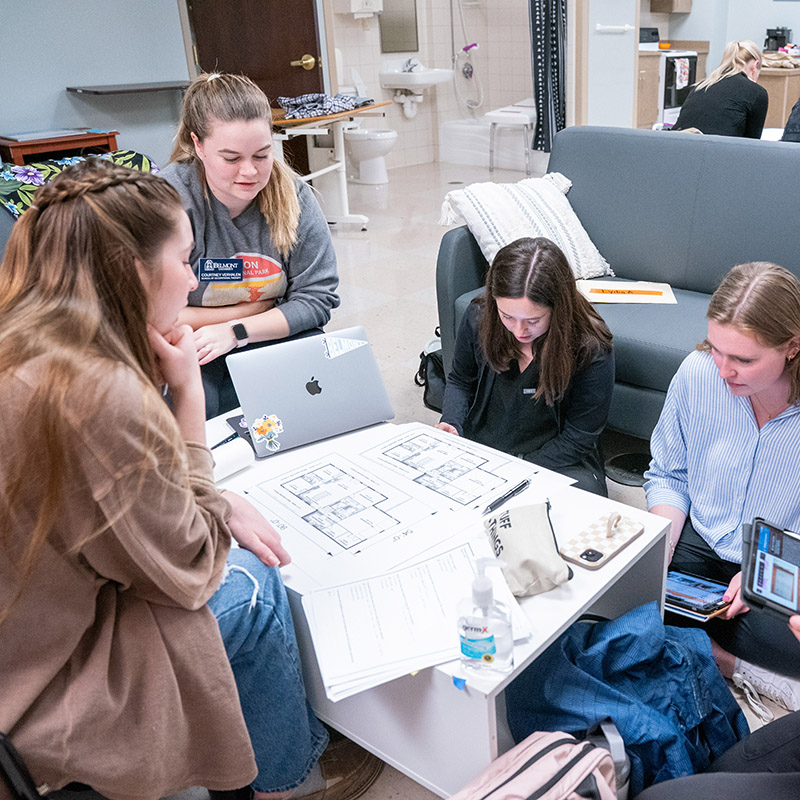 Belmont OTD has a long history of success as a program. We are fully accredited through ACOTE and our NBCOT pass rate is consistently high. The OTD program is part of a dynamic interprofessional college of health sciences providing many opportunities for collaboration.
Belmont OTD has a long history of success as a program. We are fully accredited through ACOTE and our NBCOT pass rate is consistently high. The OTD program is part of a dynamic interprofessional college of health sciences providing many opportunities for collaboration.
You will engage with a robust faculty team who represent various practice areas and specialties. Several faculty hold advanced certifications in pediatrics, seating and mobility, aging in place and assistive technology. Explore emerging practice areas such as pelvic floor health and primary care.
While studying at Belmont you will engage in service to the community with your faculty and peers. International service opportunities are also offered through immersive mission trips and Level II fieldwork.
Enhance your leadership skills through active participation in our student organizations, BSOTA, and COTAD. Both organizations advocate for the profession and those we serve while honoring diversity, equity and inclusion.
You will join a vast network of Belmont OT alumni who are making a difference in their communities as entrepreneurs, professional leaders, researchers, advocates and educators!
Request Information
Advance Your OT Career in the Nation’s Healthcare Capital
Belmont University’s Occupational Therapy Doctorate (OTD) program equips students with expertise in Clinical Reasoning, Leadership, Service, and Scholarship. Located in Nashville—home to over 500 healthcare companies—the program offers unmatched opportunities for hands-on learning, networking, and career growth. As future leaders, students will shape the profession through innovative programs, service initiatives, and evidence-based practice.
From day one, students build a strong clinical foundation within a supportive cohort of peers and faculty. With access to 800+ clinical sites nationwide and top-tier Nashville healthcare settings, fieldwork experiences are diverse and immersive. Guided by faculty, fieldwork coordinators, and expert mentors, students tailor their advanced practice focus, culminating in a residency or Capstone experience that integrates leadership, service, and real-world OT application.
What You'll Learn
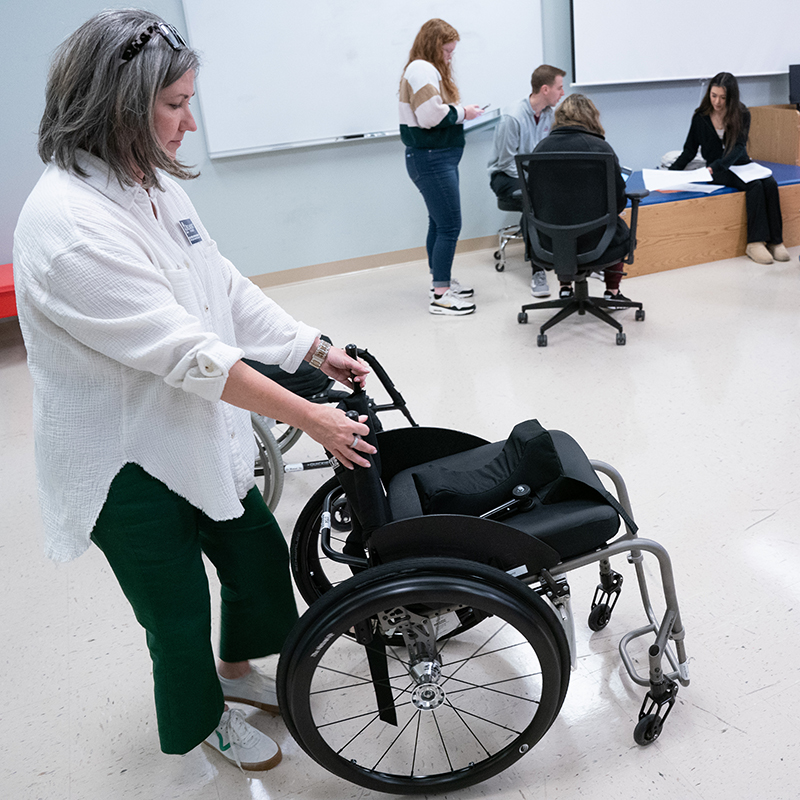 You will learn to advocate as a professional for the occupational therapy services offered and for the recipients of those services.
You will learn to advocate as a professional for the occupational therapy services offered and for the recipients of those services.- You will experience broad exposure to the delivery models and systems used in settings where occupational therapy is currently practiced and where it is emerging as a service.
- You will achieve entry-level competence through a combination of academic and fieldwork education.
- You will acquire the ability to plan and apply occupational therapy interventions to address the physical, cognitive, psychosocial, sensory, and other aspects of performance in a variety of contexts and environments to support engagement in everyday life activities that affect health, well-being, and quality of life.
- You will become lifelong learners who keep current with and contribute to evidence-based professional practice.
Interprofessional Learning
As part of Belmont’s College of Pharmacy & Health Sciences, occupational therapy students also benefit from interprofessional collaboration in our Center for Interprofessional Engagement & Simulation. Here, you’ll train alongside other health care students in state-of-the-art labs and simulation centers designed to mimic real-world clinical environments. This immersive, hands-on approach ensures that graduates enter the workforce with confidence, experience and the ability to work effectively in interdisciplinary health care teams—making Belmont the ideal place to launch your career in occupational therapy.
Program Details
The depth and breadth of the OTD program is designed to develop the knowledge, skills, and attitudes required of an entry-level occupational therapy practitioner.
The curriculum provides broad exposure to current practice settings and emerging practice areas. Students are educated in the use of occupation to provide therapeutic intervention for individuals and groups of all ages through in-depth exploration of evidence-based literature and Level I fieldwork opportunities. Through completion of a series of courses related to scholarship, students collaborate to develop and complete a culminating research project. Finally, students learn to synthesize advanced knowledge in a practice area through Level II fieldwork and the completion of an advanced Capstone Experience.
Students must successfully complete all Level II Fieldwork assignments and the Capstone experience of the program within 24 months following the completion of the didactic portion of the OTD degree program. In all cases, all graduation requirements including didactic academic coursework, fieldwork and the Capstone experience, must be completed within 6 years (72 months) of starting the OTD Program.
Doctor of Occupational Therapy Program (Year 1)
Fall Semester - Year 1: 18 Hours
- OTD 6000 Foundations and Ethical Decision Making in Occupational Therapy 3 Hours
- OTD 6010 Occupational Behaviors 2 Hours
- OTD 6011 Occupational Behaviors Lab 1 Hours
- OTD 6025 Psychosocial Dynamics in Mental Health Promotion, Prevention and Intervention 2 Hours
- OTD 6030 Kinesiology/Anatomy: Assessing Human Performance 3 Hours
- OTD 6031 Kinesiology/Anatomy: Assessing Human Performance -Lab 1 Hours
- OTD 6040 Clinical Pathophysiology 2 Hours
- OTD 6050 Introduction to Scholarship 2 Hours
- OTD 6220 Leadership and Public Policy 2 Hours
Spring Semester - Year 1: 18 Hours
- OTD 6100 Adult Human Development 2 Hours
- OTD 6110 Occupational Performance I 4 Hours
- OTD 6111 Occupational Performance I Lab 1 Hours
- OTD 6120 Clinical Studies I 2 Hours
- OTD 6140 Neuroscience: Assessing Human Performance 2 Hours
- OTD 6141 Neuroscience: Assessing Human Performance Lab 1 Hours
- OTD 6150 Quantitative Research Processes 2 Hours
- OTD 6160 Level I Fieldwork and Seminar Experience I 2 Hours
- OTD 6340 Educational Strategies in Occupational Therapy 2 Hours
Summer- Year 1: 6 Hours
- OTD 6210 Managing OT Delivery Systems 2 Hours
- OTD 6250 Qualitative Research Processes 2 Hours
- OTD 6240 Special Topics Therapeutic Modalities 2 Hours
Year 1 Total: 42 Hours
Doctor of Occupational Therapy Program (Year 2)
Fall Semester - Year 2: 17 Hours
- OTD 6130 Technology and Environmental Interventions I 2 Hours
- OTD 6131 Technology and Environmental Interventions I Lab 1 Hours
- OTD 6350 OT Research I 2 Hours
- OTD 6410 Occupational Performance II 3 Hours
- OTD 6411 Occupational Performance II Lab 1 Hours
- OTD 6420 Clinical Studies II 2 Hours
- OTD 6430 Interventions in Cognition and Perceptual Disorders 2 Hours
- OTD 6431 Interventions in Cognition and Perceptual Disorders Lab 1 Hours
- OTD 6440 Capstone Planning Seminar I 1 Hours
- OTD 6460 Level I Fieldwork and Seminar II 2 Hours
- OTD 6290 Independent Study in Occupational Therapy (elective by approval) 1-3 Hours
Spring Semester- Year 2: 21 Hours
- OTD 6415 Occupational Performance for Psychosocial Interventions 3 Hours
- OTD 6300 Childhood & Adolescent Development 2 Hours
- OTD 6310 Occupational Performance III 3 Hours
- OTD 6311 Occupational Performance III Lab 1 Hours
- OTD 6320 Clinical Studies III 2 Hours
- OTD 6330 Technology and Environmental Interventions II 2 Hours
- OTD 6331 Technology and Environmental Interventions II 1 Hours
- OTD 6360 Level I Fieldwork and Seminar III 2 Hours
- OTD 6416 Occupational Performance for Psychosocial Interventions Lab 1 Hours
- OTD 6445 Capstone Project Planning II 2 Hours
- OTD 6450 Research II 2 Hours
- OTD 6290 Independent Study in Occupational Therapy (elective by approval) 1-3 Hours
Summer Year 2: 9 Hours
- OTD 6480 Fieldwork Level II 9 Hours
Year 2 Total: 47 Hours (48-53 hours with electives)
Doctor of Occupational Therapy Program (Year 3)
Fall Semester - Year 3: 9 Hours
- OTD 6580 Fieldwork Level II 9 Hours
Spring Semester - Year 3: 10 Hours
- OTD 6680 Capstone Project 10 Hours
Year 3 Total: 19 Hours
Total Program: 108 Hours (109-114 with electives)
Fieldwork education is designed to provide occupational therapy students with opportunities to integrate academically acquired education with practice. It is during the fieldwork experience that the student can learn, practice and refine skills of observation, evaluation, treatment planning, implementation and communication. In the fieldwork setting the student begins to define his or her future roles as a practicing occupational therapist and can develop the necessary self-confidence and effective characteristics essential to meeting the demands for this challenging field. Fieldwork provides opportunities for students to apply their clinical reasoning skills and refine professional behaviors through direct mentorship from experienced clinical instructors.
Fieldwork is an integral part of the education of an occupational therapist. Fieldwork must occur in an environment that provides experiences which reinforce previous learning and which challenge and motivate the student to develop professionally and adapt to clinical situations.
The School of Occupational Therapy coordinates fieldwork opportunities for students at locations in Tennessee and across the United States within regulatory guidelines established by each state. International opportunities may also be available. Belmont University is part of the National Council for State Authorization Reciprocity Agreements (NC-SARA) which guides placement in most states.
The academic fieldwork coordinator is responsible for the planning and implementation of integrated and sustained fieldwork experiences. The experiences occur under the supervision of and with the support of occupational therapists or other qualified individuals. To ensure that the fieldwork activities support and enhance the goals of the program there is continual collaboration by clinical educators, academic faculty, and the academic fieldwork coordinator.
In keeping with Belmont University's occupational therapy program's mission and curriculum design, fieldwork will be directed toward meeting the goals of education for practice, advocacy, and research. The fieldwork experiences are designed to encourage values and behaviors that exemplify professional leadership, integrity, and social consciousness; these values/behaviors support the program's goals to develop ethical practitioners to meet the immediate and future needs of the community.
The occupational therapy program requires both Level I and Level II fieldwork experiences. Level I fieldwork is an integral part of the didactic portion of the educational program. Students are exposed to diverse practice settings to increase their understanding of occupational therapy.
Starting in the spring of the first year, students begin the first of three Level I fieldwork experiences. Students engage in directed observation and participate at clinical fieldwork sites where they can begin to apply principles taught in previous and concurrent coursework.
Level I Fieldwork
Level I fieldwork is designed to facilitate student integration of knowledge, clinical skills, and professional behaviors to prepare for Level II fieldwork and future practice.
Level I fieldwork is organized into 3 courses: psychosocial, aging populations, and pediatrics, with each course covering a variety of practice settings. Level I fieldwork uses a several teaching/learning methods and experiences, including seminar, in-person simulations, virtual simulations, standardized patients, faculty-led field trips, guest speakers, reflective assignments, interactions with fieldwork educators, and supervised practice experiences in the community.
Level I practice experiences may be supervised by occupational therapists or other appropriate personnel in the setting (e.g., occupational therapy assistants, social workers, and teachers). The faculty, academic fieldwork coordinator, fieldwork educators, and students continually evaluate the fieldwork experiences to ensure and improve effectiveness.
Preparation of the student prior to each Level I experience includes review of professional behaviors, safety procedures related to student and clients/patients, objectives, and assignments for the experience. Some of the fieldwork experiences may involve travel up to 100 miles from the Belmont campus.
Level II Fieldwork
Upon completion of all of their academic work, students then enter the community to apply their knowledge, skills and abilities through completion of their Level II Fieldworks. Belmont has established over 800 clinical sites in occupational therapy across the United States.
The goal of Level II fieldwork is to develop competent, entry-level occupational therapy generalists.
Level II fieldwork includes an in-depth experience in delivering occupational therapy services to clients. During this experience you will get to apply what you've learned in the classroom to occupational therapy intervention programs for clients in a wide variety of traditional and emerging practice settings.
During Level II fieldwork, you will have opportunities to enhance clinical reasoning and reflective practice, model professional behaviors, and develop and expand a repertoire of occupational therapy assessments and treatment interventions related to human performance.
Level II fieldwork for the OTD program at Belmont University consists of two twelve week experiences. Level II fieldwork (OTD 6480) is taken in the summer after the second year (students will register for the course in the spring and the fieldwork experience may begin the last week of the spring semester).
Students must complete all fieldwork and Capstone experience requirements within 24 months following completion of academic work.
In the final semester students complete their Capstone Experience. Successful completion of the Capstone depends on the student's ability to integrate the four curricular themes of Clinical Reasoning and Practice Application, Scholarship, Service and Leadership to affect a positive social change.
The Capstone is an integral part of the program’s curriculum design and includes an in-depth experience in one or more of the following: clinical practice skills, research skills, administration, leadership, program and policy development, advocacy, education, or theory development.
Guided advisement and reflection is started in the student’s first semester. Coursework and faculty mentorship facilitates the student‘s creation of a learning plan tailored to their values, interests, and goals and contributes to the student's development of both generalist and advanced skills in occupational therapy. A faculty mentor and expert mentor will supervise and assist the student during the Capstone to successfully complete their individualized learning plan.
As a requirement of the doctorate of occupational therapy degree, students will complete a 14-week Capstone project. The student must successfully complete all didactic coursework, fieldwork I and II’s, as well as a competency prior to proceeding to the Capstone. Fieldwork hours cannot be applied towards the Capstone hours.
Students must complete their Level II fieldwork and Capstone within 24 months of completing their didactic coursework.
Capstone Projects
The Doctorate of Occupational Therapy Program at Belmont University is designed to help you develop expertise across four central themes: Clinical Reasoning and Practice Application; Leadership; Service; and Scholarship.
Today’s healthcare and wellness initiatives require occupational therapists to be well-equipped to meet the diverse needs of their consumers and evolving industries. As leaders in the profession, you will be called upon to help shape the profession, to help design and deliver programs, to create new innovations, and to build on current practices.
Students in the OTD program at Belmont have opportunities to meaningfully engage with community partners through service and level I fieldwork. Students may also choose to complete level II clinicals abroad in places like Ireland or Ecuador. Students are encouraged to engage in professional service organizations at the school, state and national level (BSOTA, TNOTA and AOTA). Students can strive for additional certificates in Leadership through Belmont GOLD and choose to be trained as Mental Health First Aid responders. Students are empowered to practice advocacy and inclusion skills through Belmont's COTAD (Coalition of Occupational Therapy Advocates for Diversity) student membership and events.
Each year, the School of Occupational Therapy admits a class of 60 students to Belmont’s Doctorate of Occupational Therapy program. Students begin study in August of each year.
Applications for admission and applicant credentials are received nearly exclusively through the Occupational Therapist Central Application Service (OTCAS), provided by the American Occupational Therapy Association (AOTA).
Candidates may apply for admission after completing a bachelor's degree or entering the 3+3 program.
Belmont University offers accelerated pathways for ambitious first-year undergraduate students to obtain both a Bachelor Degree and a Doctor of Occupational Therapy (OTD) degree within six years. After three years of focused undergraduate study, students complete the OTD program in an additional three years, simultaneously earning their BS degree while undertaking prescribed graduate courses in the initial year.
This accelerated options demands adherence to rigorous requirements, including completion of major and prerequisite coursework, BELL Core, and WELL Core requirements within the undergraduate phase to be eligible for admission to the graduate program.
Learn more about our 3+3 pathways:
Program graduates are eligible to apply to take the NBCOT national certification examination for the occupational therapist administered by the http://www.nbcot.org/ (NBCOT). After successful completion of this exam, the individual will be an Occupational Therapist, Registered (OTR). OTD students who have successfully completed all didactic coursework, level II experiences, and their capstone project are eligible to take the exam before graduation. However, NBCOT exam results will not be released until final transcripts are submitted by the Office of the Registrar to NBCOT.
Application procedures for taking the national board exam for occupational therapy can be found at: https://www.nbcot.org/en/Students/get-certified
In addition, most states require licensure to practice, which is a separate process from NBCOT certification. Licensure requirements vary by each state. However, state licenses are usually based, in part, on successful completion of NBCOT Certification Examination For specific state licensure requirements always consult the state occupational therapy regulatory agency. - See more at: http://www.aota.org/Advocacy-Policy/State-Policy/Licensure/How-To.aspx#sthash.2A9zi1bg.dpuf
Some states allow therapists to practice on a temporary license while waiting to take or receive the results of the NBCOT certification exam. If you fail the exam, you may not be able to continue to practice on the limited permit.
Note that a felony conviction may affect a graduate's ability to be eligible to take the national certification examination or obtain state licensure.
Doctoral (OTD) and Master’s (MSOT) Programs in Occupational Therapy
Belmont University's OTD and MSOT programs meet the state educational requirements for Licensure as an Occupational Therapist in the states listed under Positive Licensure Determinations.
|
Positive Licensure Determinations |
Negative Licensure Determinations |
No Licensure Determinations |
|---|---|---|
Educational Requirements for State Licensure
|
None | Educational Requirements for State Licensure
|
Doctoral Program (OTD) Course in Physical Agent Modalities (PAMs)
Belmont University's OTD Physical Agent Modalities course meets the didactic portion of the state educational requirements leading to Physical Agent Modalities Certification in Tennessee. Belmont University has not made a determination regarding whether the program's curriculum meets the state educational requirements for professional licensure or certification in PAMs in other U.S. states and territories.
The Occupational Therapy Doctoral degree program at Belmont University is accredited by the Accreditation Council for Occupational Therapy Education (ACOTE); 7501 Wisconsin Avenue, Suite 510E, Bethesda, MD 20814; 301-652-6611; www.acoteonline.org. Program performance data on the National Board for Certification in Occupational Therapy (NBCOT) National Certification Exam for all schools is available on the NBCOT website. Cost of attendance is included on the Cost & Financial Aid page.
Committed to Your Success
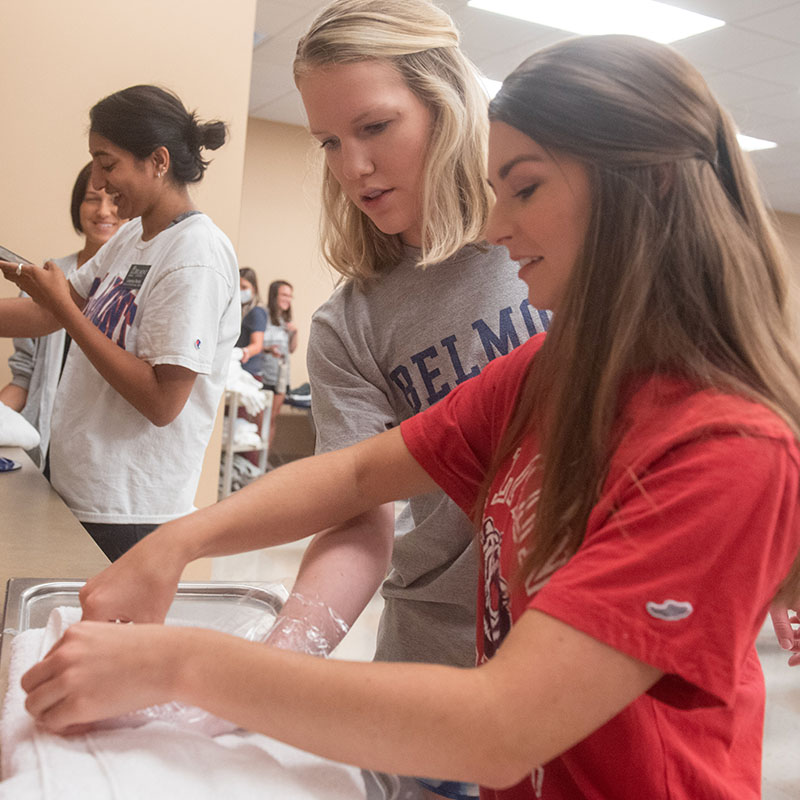
At Belmont University, we are committed to your career and professional development every step of the way. Our program offers a wealth of opportunities to help you succeed, from honing your resume and interview skills through dedicated workshops to earning a leadership certification through our GOLD (Graduate Opportunities in Leadership Development) program. You’ll also benefit from hands-on mentorship during capstone experiences, where you'll work directly with experienced professionals, building invaluable industry connections. Additionally, our community integration service initiatives provide real-world opportunities to apply your skills in meaningful ways while fostering a strong network of support. At Belmont, we equip you with the tools and experiences necessary to thrive in your career and become a leader in your field.
97% of College of Pharmacy & Health Science graduates are employed, pursuing continuing education, or enlisted in the military within 6 months of graduation and 95% of employed graduates are in positions that align with their short or long term career goals.
Learn more about Career & Professional Development at Belmont
Alumni Testimonials
Career Possibilities
Graduates of Belmont University's Occupational Therapy programs pursue diverse and impactful careers across clinical, community, and academic settings. They are well-prepared to work with individuals across the lifespan in hospitals, outpatient clinics, skilled nursing facilities, and home health. Beyond clinical roles, they can contribute in community-based programs, schools, academia, research, and assistive technology, developing innovative solutions to enhance independence and quality of life.
Occupational therapy practitioners, or OTs, help individuals of all ages overcome challenges in performing everyday activities by promoting health, preventing or mitigating the effects of injury, illness, or disability, and enabling participation in meaningful activities. They work with individuals, groups, and populations to identify challenges, develop goals, and implement strategies to improve health and wellbeing for all.
An occupational therapy educator, whether a professor, instructor, or clinical educator, prepares students for careers in occupational therapy, focusing on both theoretical knowledge and practical skills through teaching, mentoring, and curriculum development
An occupational therapy researcher identifies research areas, designs projects, supervises research, analyzes data, and provides training in research and statistical analysis to improve interventions and the scientific basis of practice
An occupational therapy entrepreneur is an individual who uses their OT knowledge and skills to create and run a business, often a private practice, consulting, or developing products/services related to occupational therapy, aiming to improve people's daily lives and well-being
An occupational therapy advocate works to promote the profession, ensure client access to services, and advance policies that support occupational well-being, often by educating stakeholders and advocating for needed resources
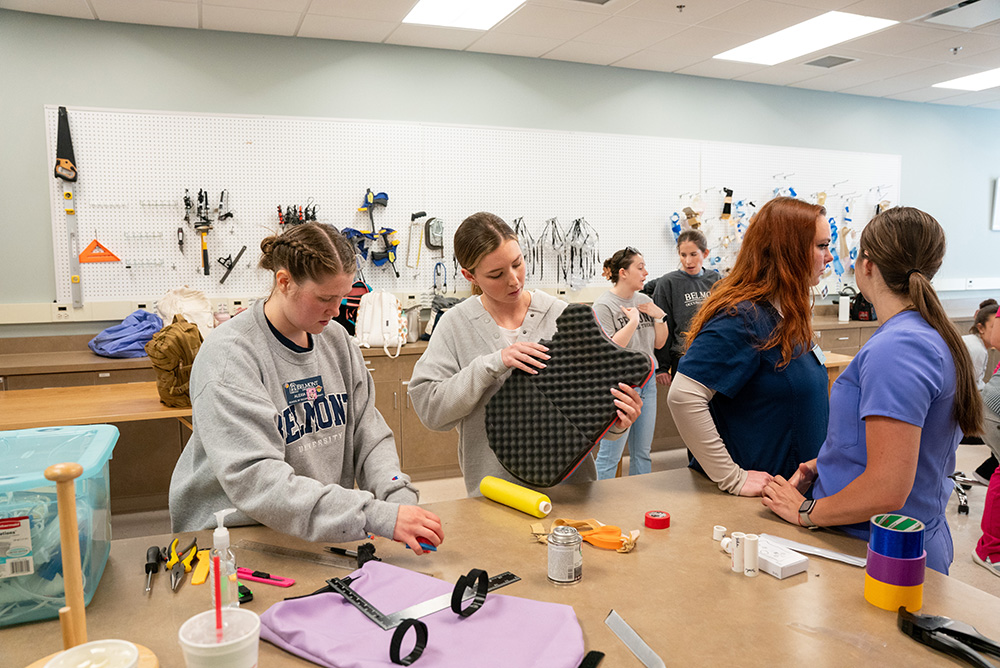
Frequently Asked Questions
Belmont University’s entry-level graduate occupational therapy program stands out due to its combination of rigorous academic coursework, extensive clinical training, and personalized mentorship. Our faculty members are licensed practitioners with broad experience across diverse practice settings and hold specialty certifications in their respective areas. This provides students with real-world, hands-on learning opportunities, while also ensuring they receive education from experts in the field. Additionally, our GOLD (Graduate Opportunities in Leadership Development) program helps students gain leadership skills and earn a professional certification, further setting them apart in the job market.
Belmont University offers a range of career support resources, including resume and interview preparation workshops, networking events, and personalized career counseling. Through the GOLD (Graduate Opportunities in Leadership Development) program, students can earn leadership certifications that enhance their professional development. Additionally, capstone mentorship experiences allow students to connect with experienced professionals in the field, fostering industry connections and gaining hands-on experience. Community integration service initiatives also provide students with opportunities to engage with and contribute to local communities while applying occupational therapy skills.
The program emphasizes real-world clinical experience through multiple supervised fieldwork opportunities, where students work in various healthcare settings, including hospitals, outpatient clinics, schools, and community organizations. These placements help students develop their skills, apply their academic knowledge, and learn how to work with a diverse range of patient populations. Faculty support students throughout their clinical journey, ensuring they are prepared and confident in their practice. Additionally, capstone projects further offer the chance to explore specialized areas of occupational therapy under professional mentorship.
Admission to Belmont’s entry-level graduate occupational therapy program is competitive and requires applicants to meet several criteria, including a strong academic record, completion of prerequisite coursework, and relevant experience in the field of occupational therapy (such as volunteer work or shadowing). Applicants must submit a completed application, including transcripts, letters of recommendation, a personal statement, and evidence of shadowing or volunteer work in occupational therapy. Additionally, applicants may be asked to participate in an interview as part of the selection process. For specific details on prerequisites and deadlines, it's important to check Belmont’s admissions page.
Belmont University’s graduate occupational therapy program welcomes applicants with a variety of undergraduate degrees. While a degree in health sciences, biology, psychology, or kinesiology is often beneficial, the program also accepts students from diverse academic backgrounds. What is most important is that applicants have completed the required prerequisite coursework in areas such as anatomy, physiology, psychology, and statistics. A strong academic foundation, along with relevant experience in the field of occupational therapy (such as volunteer work or shadowing), will help prepare students for the program's rigorous curriculum. If you are unsure whether your undergraduate degree meets the requirements, it’s a good idea to reach out to the admissions office for guidance.
Contact Us
College of Pharmacy & Health Sciences
Sarah Caylor
Assistant Director of Graduate Admissions
(615) 460.6722
Schedule a Call
MSOT Program: msot@belmont.edu
OTD/PPOTD Program: otd@belmont.edu
DPT Program: pt@belmont.edu

